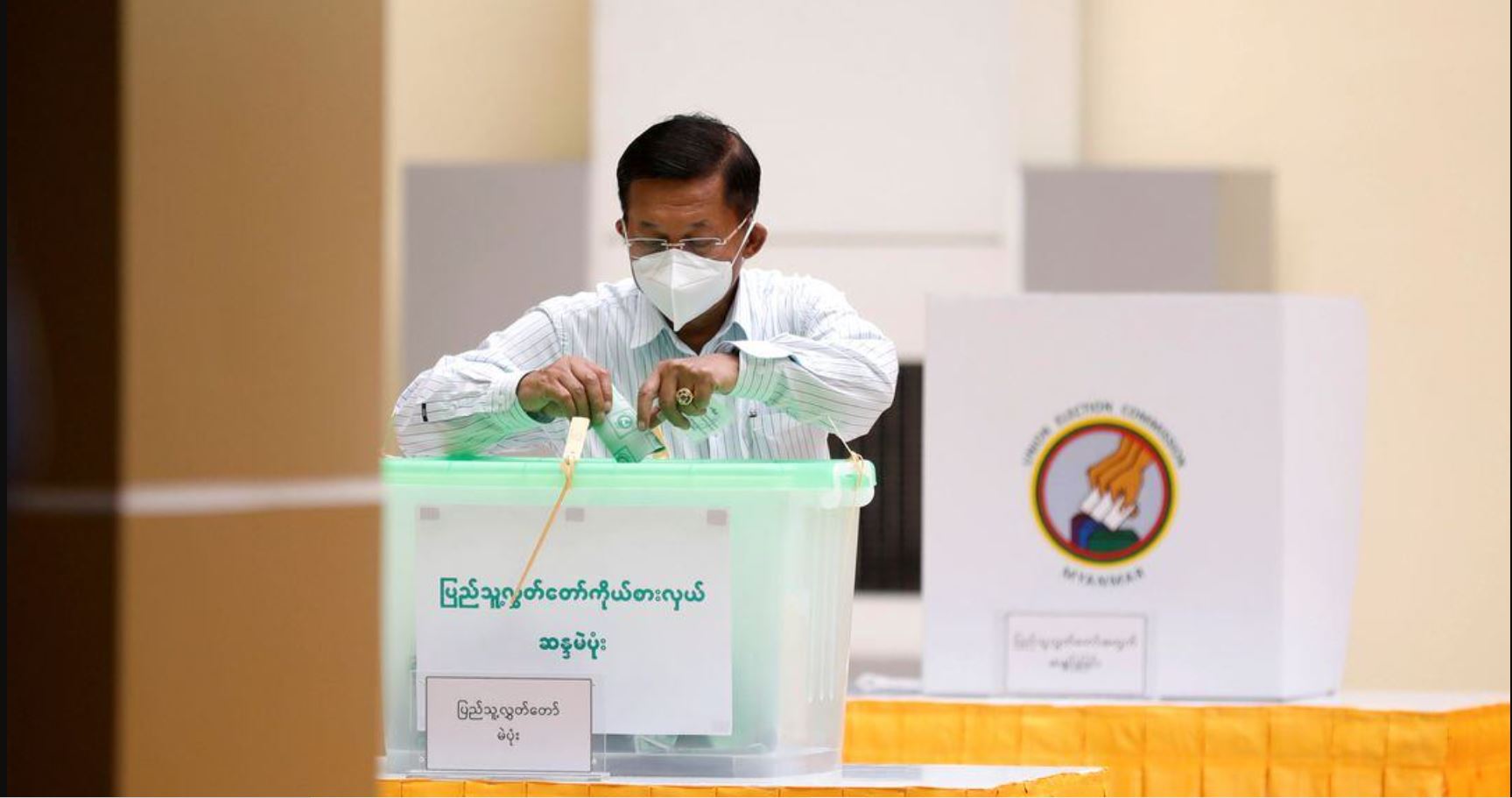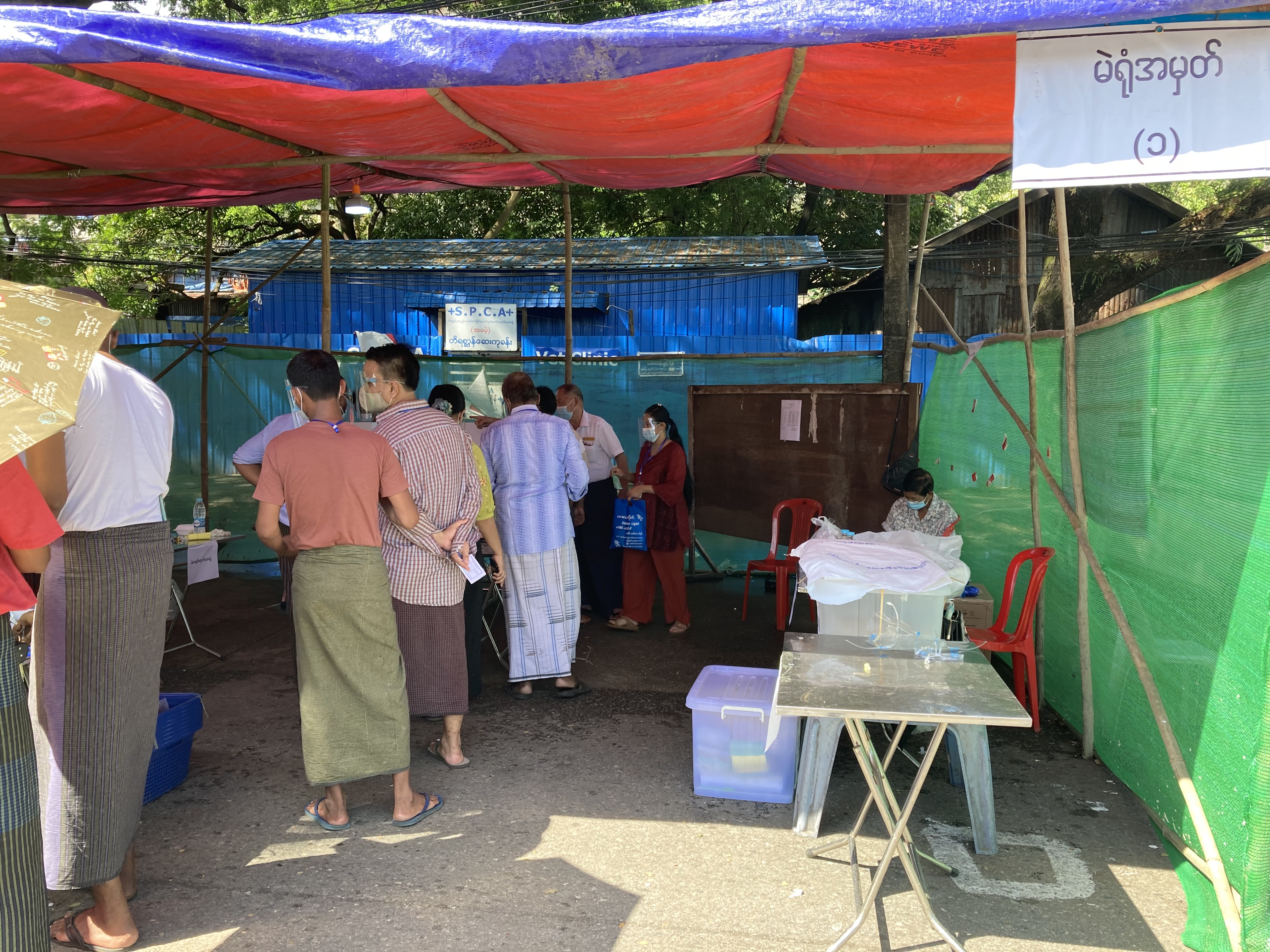CNI News
22 September 2025
In Myanmar’s upcoming election, observers from both political and military circles are closely watching the voting rights of citizens and the conditions for submitting candidates in areas affected by armed conflict.
According to the Union Election Commission (UEC), the first part of the election will be held on December 28, 2025, in 102 townships. The remaining townships will hold elections in parts 2 and 3 in January 2026.
On September 14, 2025, the UEC also announced that elections would not take place in 121 constituencies across the Pyithu Hluttaw, Amyotha Hluttaw, and Region/State Hluttaws.
Although the UEC had originally declared elections would be held in 267 townships, the updated number is even higher, which the UEC claims poses no issue. However, in territories controlled by other armed groups, it will likely be difficult to field candidates, said U Htet Aung Kyaw, vice chairman of the National Democratic Force (NDF).

Senior General Min Aung Hlaing casting his vote
He told CNI News:“As it stands, the UEC has even announced elections in more townships than originally planned, so there shouldn’t be much of a problem. But in conflict areas, it will be very difficult to nominate candidates. For example, if only one party manages to nominate a candidate and others don’t, then there won’t even be a need to hold an election in that constituency — that one candidate would automatically win.”
On September 15, 2025, the UEC also issued a statement regarding the right of voters who are outside their constituencies but are listed on the electoral roll, confirming that they would be allowed to cast advance votes.
Colonel Khun Okkar, chairman of the Pa-O National Liberation Organization (PNLO), which has signed the Nationwide Ceasefire Agreement (NCA), told CNI News that competition would still exist in constituencies, but weaker parties would struggle:

Citizens waiting in line to vote
“Every citizen should have the right to vote. So even if someone is staying elsewhere, they should be able to cast an advance vote in their original constituency. Right now, there are hundreds of thousands of displaced Rakhine people in Yangon. They can still vote for their constituencies from afar. Even though many constituencies are unstable, arrangements have been made so people can still vote. But if in a certain constituency only one person runs, then that candidate is automatically elected. Still, I expect there will be competitors in every constituency. With the NDF collapsing, there aren’t many strong parties left to compete, so in some areas, it’s possible only one candidate will stand unopposed and win automatically.”
Currently, intense armed conflicts are ongoing across Myanmar. Some of the constituencies scheduled for elections are under the control of armed groups, while others are in areas of heavy fighting.
As a result, political parties are struggling to select candidates and are facing significant security challenges in participating in the election. Similarly, registered voters are worried about their safety when it comes to casting their ballots.




